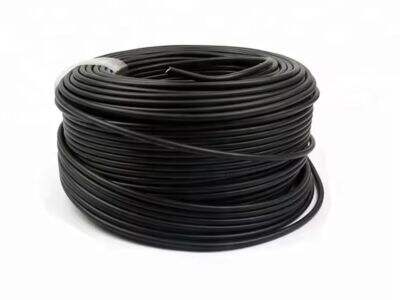Selecting the right materials is crucial when you want things to work well. In this case, the part is a type of RF connector. RFVOTON rf connector help you stay connected, like when use your phones or watch television. RF Connectors Apart Different materials can be somewhat of a game-changer in how well an RF connector performs, and below we'll delve deeper into the 'why' aspect of that.
Material selection and how it affects RF connector performance
There are a few different ways the materials used in RF connectors can influence how well they function. Certain materials might be better at heat resistance or under pressure, while other may guide signals even faster and smoother. Materials to Use for RF Connectors When Applying Materials to RF Connectors We Can think on what kind of material will suit best for the job.
Benefits of Various RF Connector Materials
Types of Material Used for RF Connectors Materials like brass or stainless steel are tough and have good longevity, making them popular choices for connectors with a long life span. Some materials such as aluminum and copper are excellent conductors of electricity, making it easier for signals to travel across devices. Choosing the optimal material for each portion of an RF connector will go a long way toward assisting them in their duties.
How material properties affect signal transmission in RF connectors?
Like elsewhere in the coaxial network, signals traveling through an RF connector need materials to help them along. More conductive materials like copper and gold allow the signals to get through without losing power. Conversely, bad conductors such as plastics or ceramics can either slow signals down or weaken them. Engineers can make the signal travel faster and more accurately through RFVOTON rf cable types by selecting materials with the right properties.
Different materials in RF Connectors and its comparison in performance
The choice of materials can significantly affect the RF connector performance. One example is connectors that are constructed from brass could be very strong but, they can also have excessive weight and cost. Aluminum connectors may be lighter, and cheaper but they won't last as long. These comparisons allow engineers to choose the best material for a specific job.
Material selection and optimization is key to RF connector performance.
So, when designing RF connectors, engineers need to think about all of the parts they use and which materials will do the best job for what. They amount to a variety of material solutions that allow connectors to do what they do best, whether transmitting signals at the highest speed possible, taking as much use and abuse as is in their lot, or providing all this at the least cost. Whether RF connector material is good or not must be selected according to the specific use, after all, every substance has its advantages and limitations.
To conclude, RF connectors should be made of proper materials as the quality of these materials may have a significant impact on how well they perform. When picking materials that can conduct electricity well, have a high strength to weight ratio and aid in signal transmission, engineers are able to ensure optimal RF connector performance. There are pros and cons to different RFVOTON rf connector materials — you need to work out which ones would do the best for each job specifically. RF connectors can hold the items from this list together and keep them running well, with all the necessary materials.
Table of Contents
- Material selection and how it affects RF connector performance
- Benefits of Various RF Connector Materials
- How material properties affect signal transmission in RF connectors?
- Different materials in RF Connectors and its comparison in performance
- Material selection and optimization is key to RF connector performance.

 EN
EN
 AR
AR
 BG
BG
 HR
HR
 CS
CS
 NL
NL
 FI
FI
 FR
FR
 DE
DE
 EL
EL
 HI
HI
 IT
IT
 JA
JA
 KO
KO
 NO
NO
 PL
PL
 PT
PT
 RO
RO
 RU
RU
 ES
ES
 TL
TL
 IW
IW
 ID
ID
 VI
VI
 HU
HU
 TH
TH
 TR
TR
 FA
FA
 MS
MS
 UR
UR
 HA
HA
 JW
JW
 LA
LA
 MY
MY
 KK
KK
 TG
TG
 UZ
UZ
 AM
AM
 PS
PS

